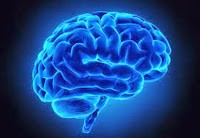
There is great confusion about the difference between Alzheimer’s and dementia.
The confusion is felt on the part of patients, family members, the media, and even health care providers.
Alzheimer’s disease and dementia are often used interchangeably as many people believe that one means the other. In fact, the distinction between the two diseases often causes confusion on the behalf of patients, families and caregivers. Discover how the two diagnoses, while related, are remarkably different.
Alzheimer’s and dementia are still a mystery in many ways. This is why the two similar diseases are often mixed up in every day conversation and understanding.
What is dementia?
Dementia is an umbrella term for a set of symptoms including impaired thinking and memory. It is a term that is often associated with the cognitive decline of aging. However, issues other than Alzheimer’s can cause dementia. Other common causes of dementia are Huntington’s Disease, Parkinson’s Disease and Creutzfeldt-Jakob disease.
What is Alzheimer ’s disease?
According to the Center for Disease Control, Alzheimer’s disease is a common cause of dementia causing as many as 50 to 70% of all dementia cases. In fact, Alzheimer’s is a very specific form of dementia. Symptoms of Alzheimer’s include impaired thought, impaired speech, and confusion. Doctors use a variety of screenings to determine the cause of dementia including blood tests, mental status evaluations and brain scans.
How Are They Different?
When a person is diagnosed with dementia, they are being diagnosed with a set of symptoms. This is similar to someone who has a sore throat. Their throat is sore but it is not known what is causing that particular symptom. It could be allergies, strep throat, or a common cold. Similarly, when someone has dementia they are experiencing symptoms without being told what is causing those symptoms.
Another major difference between the two is that Alzheimer’s is not a reversible disease. It is degenerative and incurable at this time. Some forms of dementia, such as a drug interaction or a vitamin deficiency, are actually reversible or temporary.
Once a cause of dementia is found appropriate treatment and counseling can begin. Until a proper diagnosis is made, the best approach to any dementia is engagement, communication and loving care.
Article Source: http://www.alzheimers.net/difference-between-alzheimers-and-dementia/

